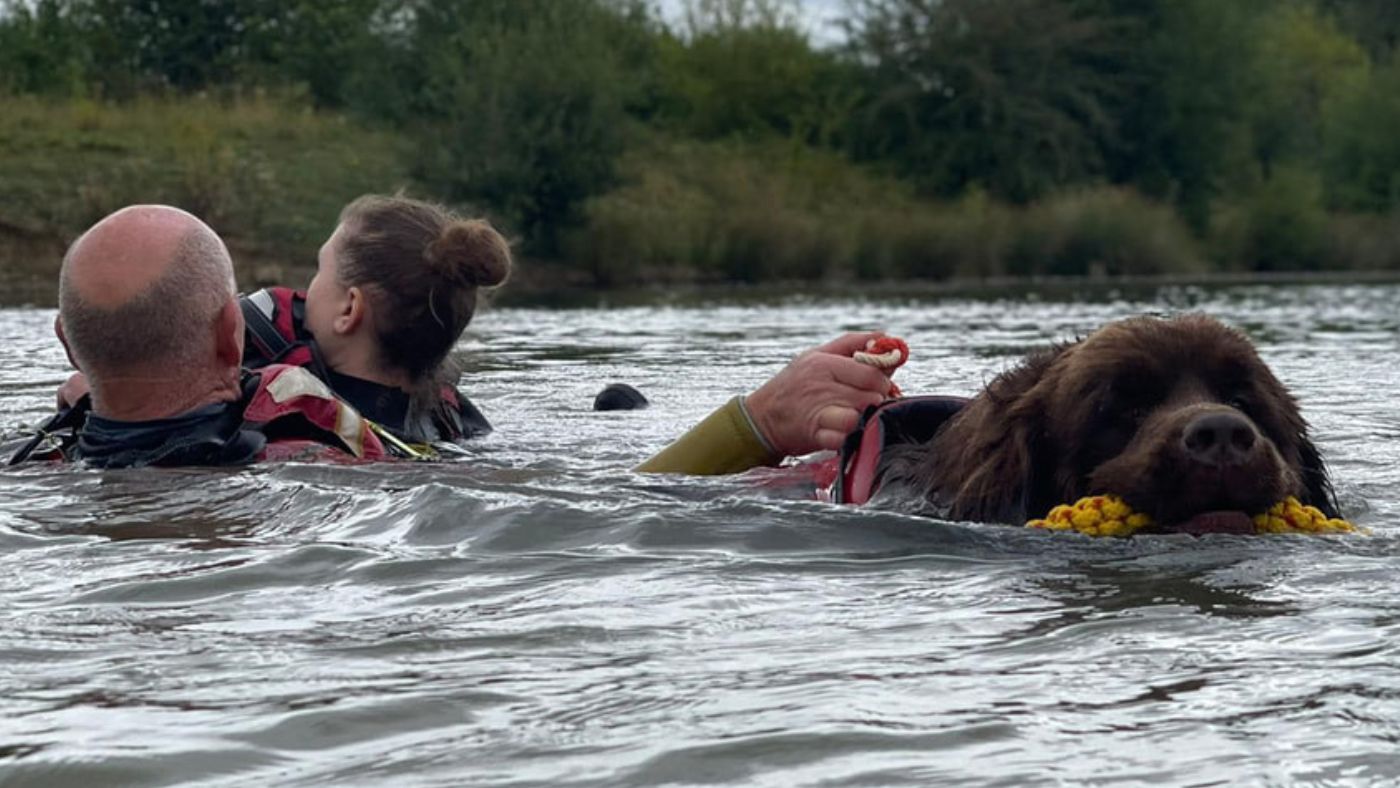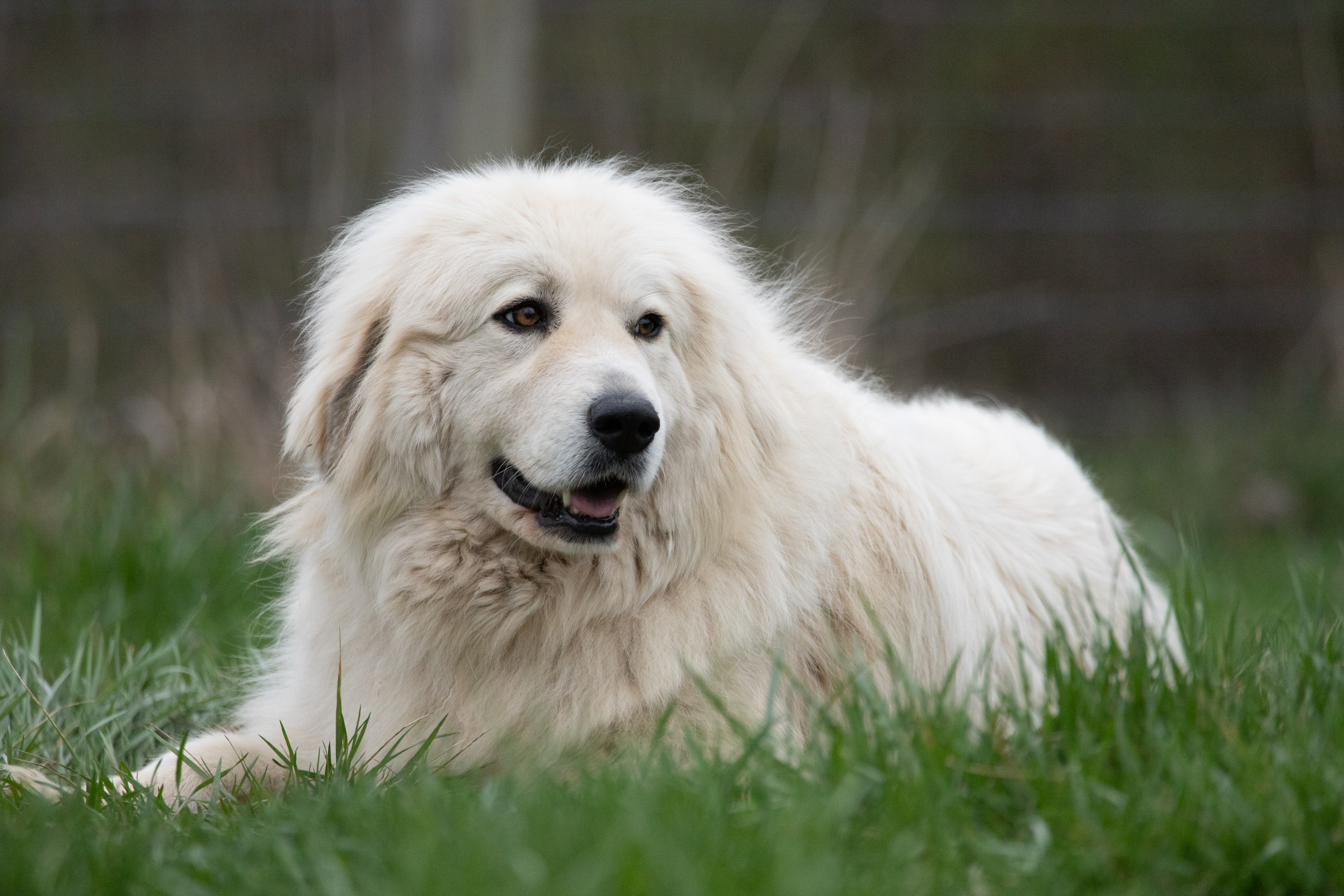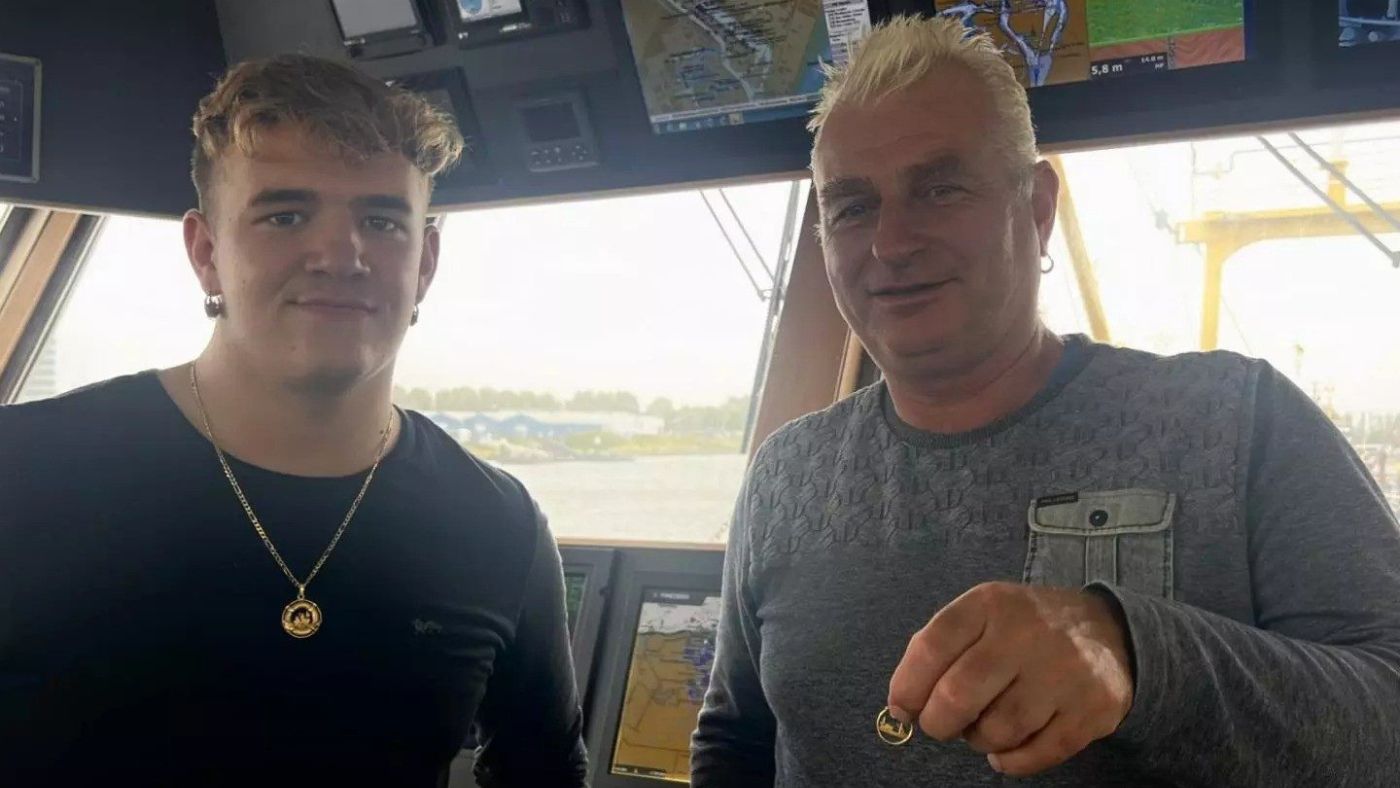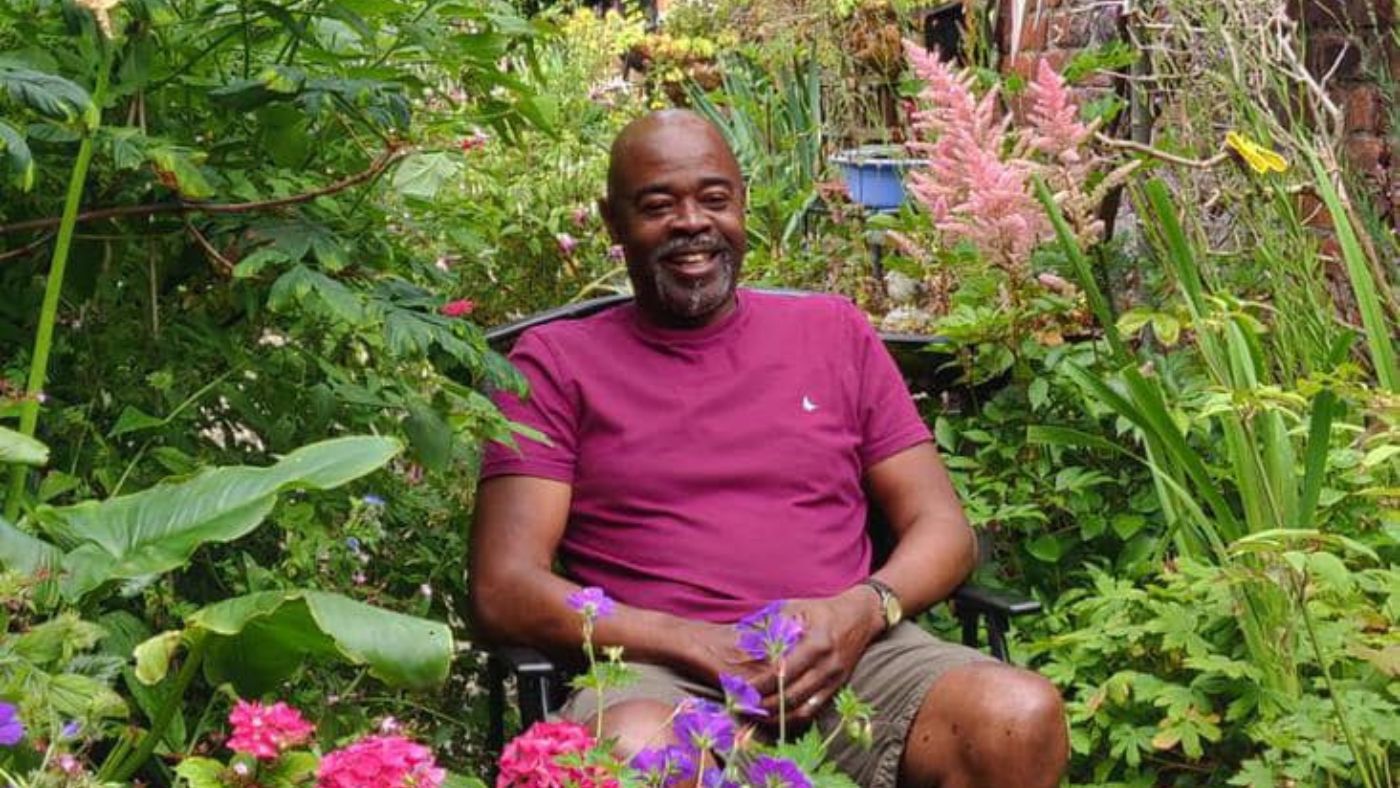The week's good news: Sept. 7, 2023
It wasn't all bad!


A free daily email with the biggest news stories of the day – and the best features from TheWeek.com
You are now subscribed
Your newsletter sign-up was successful
1. Pilot reunites Texas girl with doll she left in Tokyo
When First Officer James Danen flew from Tokyo to Texas, he had a very important passenger on board his plane: Beatrice, an American Girl doll. Beatrice belongs to 9-year-old Valentina Dominguez of Plano, who accidentally left her on a plane in early August. Her parents contacted Haneda Airport and Turkish Airlines, but no one could find Beatrice. The Dominguez family posted about the missing doll online, and word soon reached Danen, an American Airlines pilot who lives near Plano and regularly flies to Tokyo. On his second visit to the airport lost and found, Danen discovered Beatrice, and he took photos of the doll on her journey home. Danen delivered Beatrice to Valentina along with some Japanese treats and a map showing where she traveled. "There's a lot of kindness in this world," Valentina's father, Rudy Dominguez, told WFAA, adding that Danen "is a kind man. He said he would do it and followed through."
2. Rare bird reintroduced to the New Zealand wild
The takahē is making a comeback. This large, flightless bird indigenous to New Zealand was long thought to be extinct, but was rediscovered in 1948. Today, there are about 500 of the birds, with New Zealand's Department of Conservation breeding them in captivity. In late August, 18 of the birds were reintroduced to the area around Lake Wakatipu on New Zealand's South Island, with the goal of establishing the country's third wild takahē population. The land belongs to the Ngāi Tahu Māori tribe, and elder Tā Tipene O'Regan told The Guardian there are "few things more beautiful than to watch these large birds galloping back into tussock lands where they haven't walked for over a century." If the birds get used to their surroundings and flourish, seven more takahē will be released in October.
The Week
Escape your echo chamber. Get the facts behind the news, plus analysis from multiple perspectives.

Sign up for The Week's Free Newsletters
From our morning news briefing to a weekly Good News Newsletter, get the best of The Week delivered directly to your inbox.
From our morning news briefing to a weekly Good News Newsletter, get the best of The Week delivered directly to your inbox.
3. Nursing home adopts dog that kept letting himself in
A stray dog named Scout escaped from a Michigan shelter three times, and always went to the same place: the lobby of a long-term medical care residence down the street. "I'm a person who looks at outward signs, and if it's meant to be it's meant to be," Marna Robertson, the administrator of Meadow Brook Medical Care Facility, told the Detroit Free Press. The staff decided to adopt Scout, much to the delight of residents. "To each and every one of them, it's their dog," household coordinator Jenni Martinek said. Scout enjoys going from room to room for treats and hugs, but also senses when people need comforting, and has been with some residents during their final hours. "I think he knows that this is his home and he is all of ours, so that gives him a sense of security," administrative assistant Rhonda Thomczak said. "And I think he just wants to protect that."
4. New snake-like robot could make major discoveries in space
NASA's Jet Propulsion Laboratory has created a 14-foot-long robot that could be able to explore where no human or machine has gone before. Exobiology Extant Life Surveyor, or EELS, has 48 motors and sensors all along its body. The device is being trained so it can work autonomously while on the moon or Mars, able to determine the environment it is in and make decisions based on its surroundings. "You're talking about a snake robot that can do surface traversal on ice, go through holes and swim underwater — one robot that can conquer all three worlds," JPL robotics technologist Rohan Thakker told the Los Angeles Times. "No one has done that before." Rovers can have a hard time with bumpy surfaces and steep terrain, and EELS, which is set to be deployed in a few years, will be able to slip into areas easier. "The most interesting science is sometimes in the places that are difficult to reach," Matt Robinson, EELS project manager, told the Times.
A free daily email with the biggest news stories of the day – and the best features from TheWeek.com
5. Groundbreaking surgery gives woman her voice back
Shirli Aharon began having a hard time speaking a decade ago, but it was until recently that doctors determined she had spasmodic dysphonia, a voice disorder that causes involuntary spasms of the muscles in the larynx. By this point, it was so difficult for Aharon, an Israeli mom of three, to speak that she stopped communicating. She received some hopeful news from Dr. Yael Oestreicher-Kedem in Tel Aviv, who told her that doctors in Japan developed an innovative surgical treatment involving taking fat from the abdomen and inserting it into the vocal fold to prevent spasms. "I didn't hesitate for a moment and agreed to the operation with complete faith in her wonderful abilities," Aharon told The Jerusalem Post. She became the first person in Israel to undergo the endoscopic surgery, and as soon as she woke up, Aharon was able to talk again. "I feel like I've been reborn," she said, adding, "No one will stop me from speaking now."
Catherine Garcia has worked as a senior writer at The Week since 2014. Her writing and reporting have appeared in Entertainment Weekly, The New York Times, Wirecutter, NBC News and "The Book of Jezebel," among others. She's a graduate of the University of Redlands and the Columbia University Graduate School of Journalism.
-
 How to Get to Heaven from Belfast: a ‘highly entertaining ride’
How to Get to Heaven from Belfast: a ‘highly entertaining ride’The Week Recommends Mystery-comedy from the creator of Derry Girls should be ‘your new binge-watch’
-
 The 8 best TV shows of the 1960s
The 8 best TV shows of the 1960sThe standout shows of this decade take viewers from outer space to the Wild West
-
 Microdramas are booming
Microdramas are boomingUnder the radar Scroll to watch a whole movie
-
 The week's good news: Sept. 21, 2023
The week's good news: Sept. 21, 2023It wasn't all bad!
-
 The week's good news: Sept. 14, 2023
The week's good news: Sept. 14, 2023It wasn't all bad!
-
 Lives transformed by swimming with Newfoundland dogs
Lives transformed by swimming with Newfoundland dogsfeature Good news stories from the past seven days
-
 The week's good news: August 31, 2023
The week's good news: August 31, 2023feature It wasn't all bad!
-
 The week's good news: August 17, 2023
The week's good news: August 17, 2023feature It wasn't all bad!
-
 Earring lost at sea returned to fisherman after 23 years
Earring lost at sea returned to fisherman after 23 yearsfeature Good news stories from the past seven days
-
 Farmer plants 1.2m sunflowers as present for his wife
Farmer plants 1.2m sunflowers as present for his wifefeature Good news stories from the past seven days
-
 Manchester alleyway transformed into a plant-filled haven
Manchester alleyway transformed into a plant-filled havenfeature Good news stories from the past seven days
